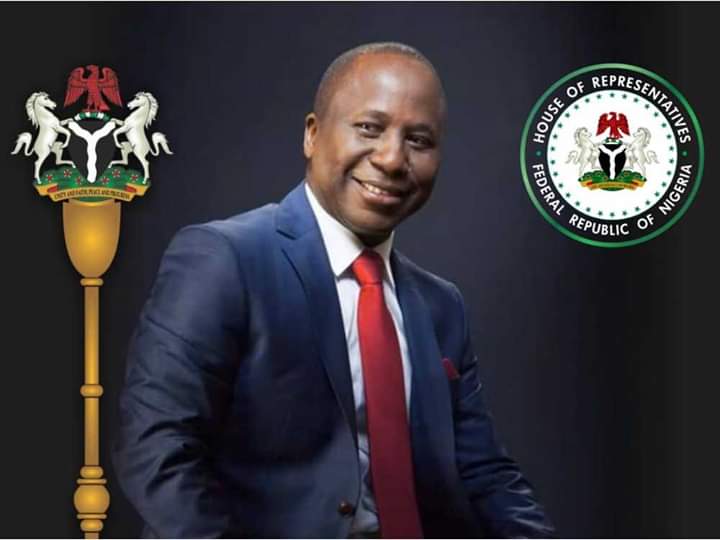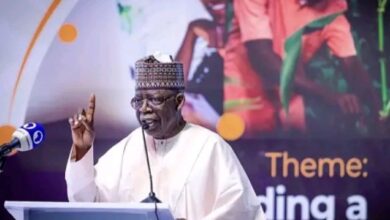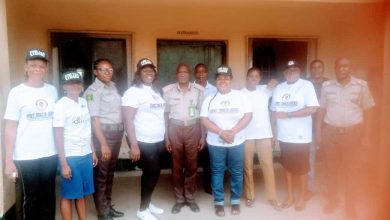COVID-19: Tackling Likely Boomerangs Of Unlocking Nigeria
COVID-19: Tackling Likely Boomerangs Of Unlocking Nigeria

By Prof. Steve Azaiki, OON
Understandably, the five-week lockdown of government and private activities, due to the Coronavirus (COVID-19) pandemic, except essential services, particularly in the hard-hit states and Abuja, the Federal Capital Territory, has taken huge tolls on Nigeria’s economy and welfare of households. This prompted the Federal Government to order partial unlocking, starting from Monday, 4th May, 2020.
Coming from the executive fiat of President Muhammadu Buhari, the gradual reopening order has been implemented, and the busy cities of Lagos, Abeokuta, Abuja and others are beginning to get swamped up with people and organizations going about their normal activities, with a kind of expected happiness.
But that joy of coming out after weeks of imprisonment occasioned by the pandemic that is no respecter of class, is not without visible personal, household and institutional risks.
This explains why many voices have spoken against the easing of the lockdown, as a hurried move by the Federal Government, which has picked up salvaging the economy, as a reason for its action. This is aside the feeling of a majority of Nigerians that government is hurriedly unlocking because it could not provide palliatives or do so transparently and committedly to reach vast number of the vulnerable populace.
Call it “easing” or “gradual” unlocking as the politically correct expressions, the new directive appears to be a way out of the burden of providing reliefs for the people, who are witnesses to the huge donations made by donors, besides government funds earmarked and more to be borrowed. Yet, the cost of cushioning the impact of the lockdown arising from the disaster would not be equitable to the value of humans that might get infected newly, or that might die as a result of the unlocking.
Even while in the first phases of the lockdown, the rate of infections rose day by day, and still rising, a development that has made some Nigerians to suspect the authenticity and sincerity of the figures rolled out by the Nigerian Centre for Disease Control (NCDC) and the Federal Government’s assertion of capability and huge resources put into the management of the health disaster.
As at the time of doing this write-up on the 4th of May, 2020, NCDC’s figures indicated 2558 cases of infections; 400 recoveries and 87 deaths, meaning that even while in the complete lockdown, total infected persons in the country rose far higher than the initial stages of the outbreak.
Routine figures also show same escalation of the rate of infections, with 4th of May alone at the time of writing this article, for instance recoding 170 cases of new infections, as released by the NCDC. In the last few days up to the time of weaving this piece, the hard-hit states, for instance, Lagos, Ogun, Gombe, Borno, Bauchi and Kano, in addition to Abuja, have continued to record highest figures in the distribution of rates of infections.
States that were luckily free, for instance, Bayelsa state, Nasarawa, Kebi, Zamfara, Jigawa, Niger and Enugu have also recorded incidents of infections, and the figures are rising in those new states as well.
Considering that prevention measures such as stay-at-home order; regular washing of hands; not touching mouth, eyes and nose; wearing of face mask; closure of borders, physical distancing; self-quarantining; voluntary presentation to designated health teams for observation are not fully adhered to due to obstinacy; inadequacy of safety gears; hunger; social and cultural barriers, there is palpable fear of further escalation of the disease in cities and communities, now that the lockdown is eased. It is even more so, as state governments, except a few, have adopted the national policy of gradual opening of their states.
The issues of inadequate facilities for testing; isolation and treatment, could even spell more disaster, given the gradual unlocking.
Therefore, it was expected that new measures would have been put in place to curb further increase in the number of infections. In that regard, it behooves one to call on the Federal Government and states to procure more testing facilities, and work out modalities for mass testing so as to identify new cases of infections and manage them, in order to forestall continuous spread of the COVID-19 virus.
This could be achieved with monies and materials so far donated by generous individuals and organizations, in addition to other extant funds.
As opined in my previous write-ups, willing individual and corporate owners, could volunteer their hotels in urban and surb-urban areas, to Federal and State Governments, for use as isolation, testing and treatment centres.
Public enlightenment campaigns to enhance adoption of prevention measures would also need to be redoubled, and penalties slammed on violators in order to curb further escalation of the disease.
It is also imperative to suggest that the Federal Government should set up infectious diseases institutes in six Federal Universities in each of the geo-political zones. Such specialized institutes should be well funded, fully equipped and with the right manpower to proactively and reactively produce research results for the identification, understanding and management of epidemics through discovery of curative or treatment solutions.
Locally made drugs, as currently claimed by our scientists, whether orthodox or unorthodox in nature, ought to be looked into, to ascertain the scientific and medicinal potencies as claimed by the inventors or producers. It would amount to self-afflicted neo-imperialism if such acclaimed drugs are waived aside with the derogatory feeling that Africa or Nigeria cannot make medical breakthroughs, for the world to benefit, let alone solve its problems.
The lockdown has already been eased, and would head towards complete opening of the country and its states, as projected by the Federal Government, but care must indeed be taken to avert greater danger than we currently find ourselves.
To avoid that, the needful should be done as proffered. Nigeria’s present workforce, future leaders and other ages, need to be alive for the post-pandemic economy and polity. So, let’s stay safe!






